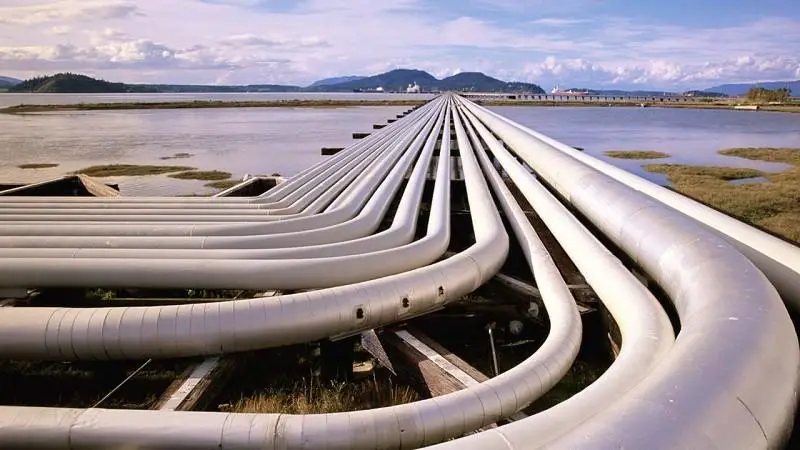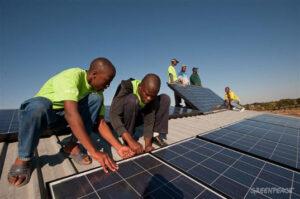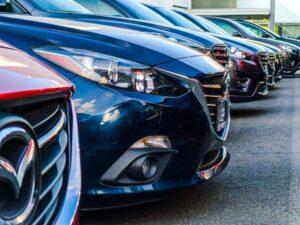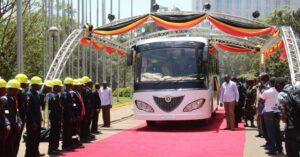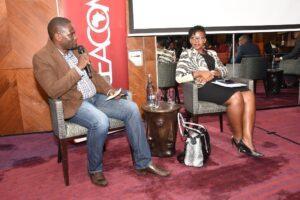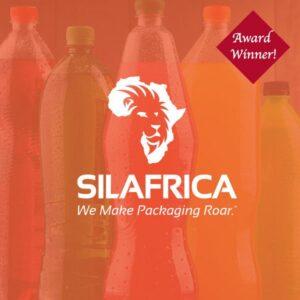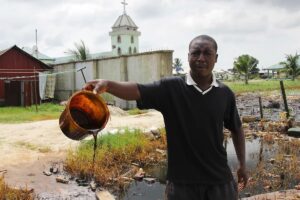- Abu Dhabi radiates optimism as over 300 startups join AIM Congress 2024
- TLcom Capital Raises $154 million in Funding to Boost Its African Growth
- Africa’s $824Bn debt, resource-backed opaque loans slowing growth — AfDB
- LB Investment brings $1.2 trillion portfolio display to AIM Congress spotlight
- AmCham Summit kicks off, setting course for robust future of US-East Africa trade ties
- Why the UN is raising the red flag on the UK-Rwanda asylum treaty
- Portugal’s Galp Energia projects 10 billion barrels in Namibia’s new oil find
- Wärtsilä Energy offers tips on how Africa can navigate energy transition and grid reliability
Manufacturing
Africa has been hailed as the next frontier in the provision of global oil and natural gas resources, especially now in the wake of the ongoing Russia-Ukraine war.
This crisis has not only altered the global energy landscape, but also instigated an inflation in gas prices, given the former’s position in the hierarchy of major global producers. As sanctions continue to soar, Europe has embarked on a quest to find contingency energy supplies, as it seeks to minimize its dependency on Russia; which has already cut off gas supplies to countries like Finland, Poland and Bulgaria, over energy payment disputes.
Consequently, Africa’s gas resources have gained a newly found prominence, pertinently by the European Union (EU); owing to the continent’s rich endowment of oil and deep gas reserves. The mounting global demand for gas, has been pushing international energy companies to reconsider African projects. The numerous ongoing and upcoming oil …
However, all efforts have been directed in that sector to try and make it greener and cleaner. Among consumers, a major shift is now being witnessed with most of the industries investing in clean energy sources that are both affordable and sustainable.
Such initiatives have made Kenya be rated among the top countries that are implementing their nationally determined contributions that seek to cut greenhouse gas emissions in the country by 32 per cent by 2030.
The latest industry to have made noted efforts to transit to clean Energy is Bamburi Cement Factory situated in Bamburi Mombasa.…
- Varun Beverages has become one of the country’s biggest beverage firms in Zimbabwe
- Delta has had a firm grip on the Zimbabwean drinks market and is home to international brands of soft drinks and beers
- Varun is on an aggressive urban assault to capture more market share and challenge the drinks giant.
Varun Beverages has become one of the country’s bigger soft drinks firms in Zimbabwe within a relatively short period.
Bottlers of Pepsi, 7up and Mirinda brands, Varun has established itself as one of the soft drinks companies to reckon with in the soft drinks market.
This is an impressive achievement given it is going toe-to-toe with long-established Delta, Zimbabwe’s most prominent beverage firm with big brands such as Coca-Cola, Fanta and Sprite.
Since the colonial era, Delta has had a firm grip on the Zimbabwean drinks market and is home to international brands of soft …
Bamburi Cement has launched an innovative and green construction project in Kenya dubbed “Houses of Tomorrow’ (HoT) in a bid to fulfil its sustainable construction agenda through low-carbon based building solutions.
The projects seek to achieve very low embodied CO2 footprint buildings using low carbon cement-based materials and locally available resources.
The project involves careful selection, design and use of materials which leverage low carbon standards in the overall construction, and especially application of near zero embodied energy concrete designed by incorporating low carbon content cement. Some of the cement products to be used for this construction project feature a mix of Bamburi Cement’s products Powermax and Nguvu pozzolanic cements for concrete works. Fundi masonry cement, a low carbon cement, will also be used for mortar and plaster works.
The project launched by Bamburi’s parent company LafargeHolcim, is ongoing in several countries on each continent.
Commenting on the new building …
Twiga Cement (TPCC on the Dar es Salaam Stock Exchange) on Friday, May 22, 2020, released its Annual Report and audited accounts for the year ended 2019. Revenues grew 6% and net profits rose 5% in 2019 from the year earlier. Dividends were steady at TZS 290 per share for the third year running.
Twiga is the dominant cement company in Tanzania. It is the 19th-biggest company overall in East Africa by market value and the fifth-biggest in Tanzania, according to the latest African Business rankings.
The company is a subsidiary of German multinational Heidelberg Cement, which owns 69.3%. The other 30.7% trades on the DSE and is owned by thousands of small shareholders and investment funds.
Twiga has a huge competitive advantage over the other cement industry players in Tanzania, because its production facilities are on the outskirts of Dar es Salaam. Cement is heavy and expensive …
Rwanda and Uganda are quite ahead of their East African neighbours in the global switch to electric cars, even as infrastructure shortcomings limit investments in the emerging sector.
In the past two months, Kampala and Kigali have unveiled electric vehicle assembly plants, with Kenya and Tanzania only making baby steps toward embracing the new technology.
Uganda’s state-owned Kiira Motors Corporation has so far built two battery-powered cars and a solar electric bus showing its ambition in the region.
The electric bus is called the Kayoola Electric Vehicle Series (EVS) and has been built using Kiira Motors home-grown green mobility technologies while partnering with Motor Co. Ltd, a Chinese Equipment Manufacturer.
The electric buses have a capacity of 90 passengers (49 sitting and 41 standing), compared to the diesel engine vehicles which have a capacity of 65 passengers. They can cover a distance of 300km under a single charge.
Last year …
With an extra three billion people predicted to live here in the next 30 years, the waste footprint will also increase on a massive scale.…
Silafrica, a leading packaging company in Africa that supplies plastic packaging throughout East Africa, including Kenya, Ethiopia, Uganda and Tanzania is set to be the first African company to employ the Smart Crate technology. Designed especially for produce, Smart Crates are scheduled to be in production within six months.
The RFID and NFC tag technologies provide some important logistical advantages previously unavailable to the produce industry. A crate equipped with RFID can be tracked throughout its entire journey by scanning at routine checkpoints. NFC tags collect and store data, which can be quickly accessed by simply tapping a smartphone against the tag. The vented crates also offer improved air flow, keeping produce fresher during transit from farm to market.
Using smart crate RFID and NFC tag technologies also makes managing the distribution of produce more streamlined and predictable. Now, companies like Twiga Foods, who sources crops from more than eight …
KRA has also deployed more than 80 trained officers to enable the smooth implementation of the system around the country…





